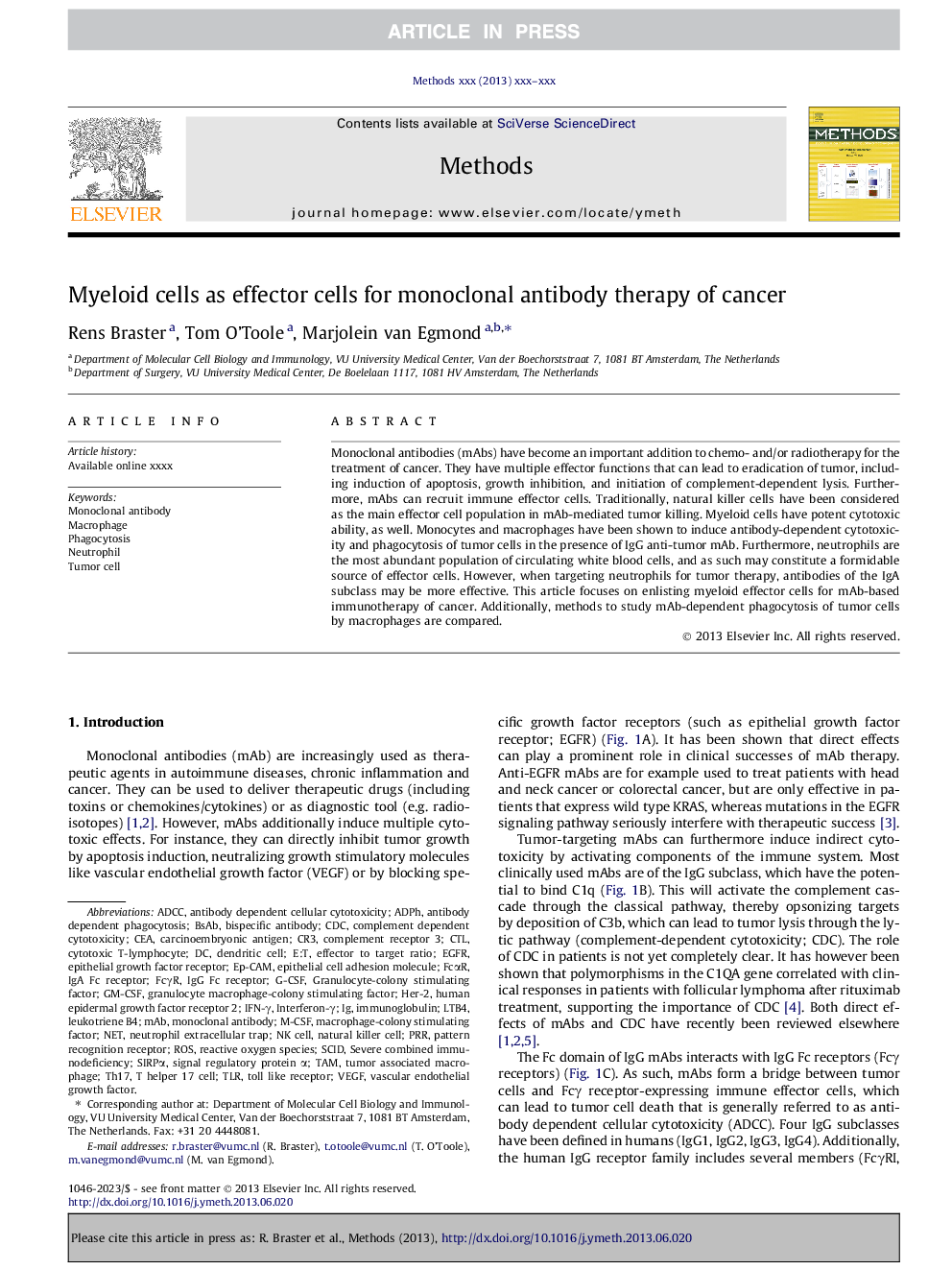| Article ID | Journal | Published Year | Pages | File Type |
|---|---|---|---|---|
| 10825826 | Methods | 2014 | 10 Pages |
Abstract
Monoclonal antibodies (mAbs) have become an important addition to chemo- and/or radiotherapy for the treatment of cancer. They have multiple effector functions that can lead to eradication of tumor, including induction of apoptosis, growth inhibition, and initiation of complement-dependent lysis. Furthermore, mAbs can recruit immune effector cells. Traditionally, natural killer cells have been considered as the main effector cell population in mAb-mediated tumor killing. Myeloid cells have potent cytotoxic ability, as well. Monocytes and macrophages have been shown to induce antibody-dependent cytotoxicity and phagocytosis of tumor cells in the presence of IgG anti-tumor mAb. Furthermore, neutrophils are the most abundant population of circulating white blood cells, and as such may constitute a formidable source of effector cells. However, when targeting neutrophils for tumor therapy, antibodies of the IgA subclass may be more effective. This article focuses on enlisting myeloid effector cells for mAb-based immunotherapy of cancer. Additionally, methods to study mAb-dependent phagocytosis of tumor cells by macrophages are compared.
Keywords
ADPhEffector to target ratioCR3BsAbEGFREp-CAMCDCCTLADCCCeAE:Tantibody dependent cellular cytotoxicitycarcinoembryonic antigenbispecific antibodyDendritic cellcytotoxic T-lymphocyteepithelial cell adhesion moleculecomplement dependent cytotoxicityComplement receptor 3Epithelial growth factor receptor
Related Topics
Life Sciences
Biochemistry, Genetics and Molecular Biology
Biochemistry
Authors
Rens Braster, Tom O'Toole, Marjolein van Egmond,
